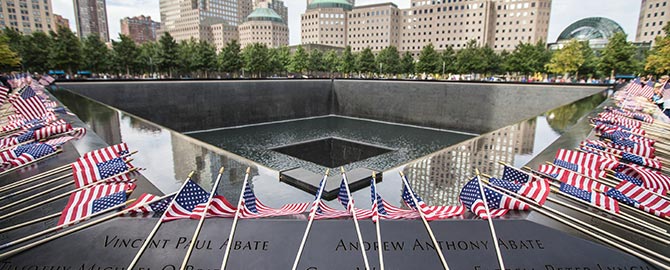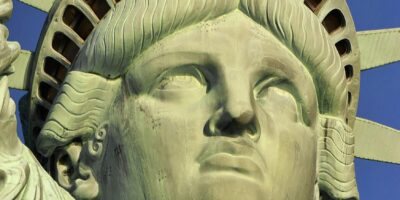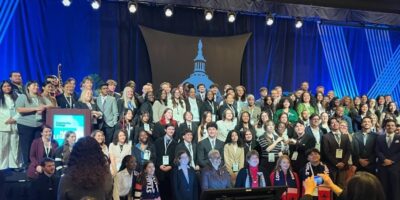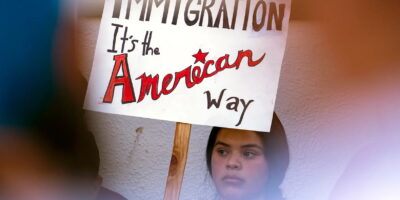If you’re my age (or even, admittedly, several years younger), you likely remember where you were just before 9:00 a.m. on Tuesday, September 11, 2001, when hijacked American Airlines Flight 11 crashed into the North Tower of the World Trade Center in New York City.
As a shocked and confused nation tried to sort out what was happening, that horrific moment was followed soon after by three more hijacked planes crashing into the South Tower of the World Trade Center; the Pentagon; and, thanks to the heroic actions of passengers who fought back against the hijackers, into a field near Shanksville, Pennsylvania, instead of into a third target: the White House.
That morning, 2,977 people died in the attacks, a “war on terror” was launched that continues twenty years later, and American life changed in ways we are still discovering today.
The week before 9/11, I had started a new job as Dean of Academic and Student Affairs at Oakland Community College just outside Detroit, Michigan.
On the morning of the attacks, I was doing what new deans do: getting to know my new faculty and staff colleagues. A few minutes after 8:46 a.m., I was sitting in the office of Bill Isanhart, the Chairman of the Humanities Department, drinking coffee and talking about plans for the fall semester when the secretary just outside the door gasped, “Oh, my god!”
We scrambled out of Bill’s office to find out what was wrong and heard the shocking news about the first plane crash. A short while later, we gathered together with others on campus around a television screen and watched as the other terrible events of the day unfolded.
Wherever you lived in America, the weeks and months that followed were filled with uncertainty, anxiousness, anger, and sadness as we mourned those we lost, searched for ways to protect ourselves, and sought retribution against those who had carried out the worst attack on American soil since Pearl Harbor.
For a short while, it was also a time of greater unity and sense of purpose, of patriotism and common cause, than we have seen since—a far cry from the rancor and wrangling over the January 6 Capitol riot, or our national response to the COVID-19 pandemic.
During my first year as dean at Oakland Community College, I was commuting nearly 90 miles each way, from East Lansing to Auburn Hills, Michigan.
At first, news reports filled those long hours in the car.
Then, when I simply could not take any more, it was books on tape (yes, tape, this was 2001).
By the time winter arrived, I drove in silence for a while.
My children were born in 2000 and 2004. They have no memories of the worst moments of 9/11, but have lived their entire lives in its aftermath, from heightened security measures that have forever changed the ways we travel, to perpetual conflicts in the Middle-East, increased religious tensions, and the other features of our post-9/11 national identity.
Today, in honor of those whose lives were most impacted twenty years ago, we are spending some together listening to moving personal stories of 9/11 from NPR Story Corps’ “September 11 Initiative.”
John Vigiano, a retired New York City firefighter, tells the story of his sons, John Jr., also a firefighter, and Joe, a police detective, who both responded to calls to the World Trade Center on September 11 and did not return.
Beverly Ekert tells the story of her final conversation with her husband, Sean Rooney, who called her while working his way up to the roof of the World Trade Center after the planes had collided, seeking a way out.
Their stories echo the sadness, and the hopefulness, of some Northern Essex Community College alumni.
Class of 1985 Nursing graduate Carol Flyzik who offered to fly to to California on a business trip so others would not have to, died when Flight 11 struck the World Trade Center.
Elise O’Kane was a flight attendant who got “saved by a typo” when she incorrectly entered a code and her schedule changed, saving her from crashing into the South Tower on Flight 75.
Her near miss caused her to change her career direction. She enrolled at NECC and graduated from the Nursing Program in 2005, and went to work at Lowell General Hospital.
Then, there is this account from NECC’s new Vice President of Academic Affairs, Dr. Paul Beaudin:
That day, I was an Associate Superintendent working in Manhattan. I saw the smoke, witnessed tens of thousands of people rushing up First Avenue to get home to Queens, Westchester, and the Bronx on foot. Children in schools that I worked with had to evacuate the area south of New York’s Houston Street. For months, the trauma of that event consumed my principals, teachers, and their students. The stench in the air, the tanks, and the barricades were daily reminders in Manhattan and served to remind all of us that safety could not be taken for granted. In retrospect, I approached it by “showing up.” The rest of that year required me to simply be present to the educators and listening to those who were doing the direct work with children who became orphans or homeless or were sickened by the dust that was everywhere. I think that experience prepared me well for working through the pandemic and the fears of our current age.
When I think about “the fears of our current age” I am reminded of Viktor Frankl’s observation in Man’s Search for Meaning, reflecting on his experience as a prisoner in Nazi concentration camps in the Second World War that, “Everything can be taken from a man but one thing: the last of the human freedoms—to choose one’s attitude in any given set of circumstances, to choose one’s own way.”
Today, on the twentieth anniversary of 9/11, as we remember the lives lost that day, the lives lost since, and the countless others—all of us in one way or another—affected by that tragedy, may we reach deeply into the well of our collective national experience, summon the better angels of our nature, and choose ways forward that strive toward greater unity, common cause, and a more peaceful coexistence.






